

by Clayton Donaldson
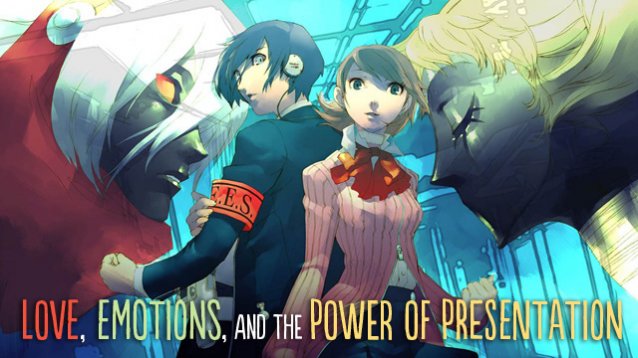
I recently graduated from college and I guess I've been going through a lot of thinking (or perhaps the term "soul searching" would be more appropriate) as to why I love game design and how things have changed over the years. I'm happy to say my interest in games hasn't declined in the least, but the amount of games that I can actually say satisfied my thirst have become fewer over the years.
At first I thought it was just a change in personal taste, but now a year has gone by and I have had my beliefs tested and questioned for all their worth. I no longer believe the problem is with me—a large portion of the game industry does not understand their own medium.
My thoughts on this subject expand into many different areas of videogames so I think I'll break them up and turn them into several articles. For now, I'll talk about the subject that seems to be the most misunderstood.
Love, emotions, and the power of presentation.
I have taken a LOT of flak from friends in the past for counting Final Fantasy VIII and X among my favorites. My friends remarked on how X and especially VIII had a nightmarish fighting system later into the game, and X in particular is infamous for having some seriously atrocious dialogue. If I'm completely honest with myself I can understand their frustrations and there's always a grain of truth in their arguments against them, but for me I think their stories—the way the stories were handled and what was meant behind them—are what always had me so fascinated. Both games' stories featured a protagonist that was in many ways flawed trying to understand himself (if only a little) and their actions were completely understandable because the stories built up in such a way that they made sense.
Every decision, indecision, every fear, and every passionate moment was easy to grasp.Every decision, indecision, every fear, and every passionate moment was easy to grasp. As for love, we could even watch it grow or fade away. The stories offered a degree of consistency that gave me an understanding of what good presentation looks like. I felt connected to the story.
Lately, games have been sacrificing attempts to reach this level of connection for cinematic flair. At first, I thought Assassin's Creed showed enough promise to reach that level, especially after they spent so much time going into the Creed during the first one, and explored the power of family in the second. However, they eschewed any further progress by milking Ezio for all that he was worth with Brotherhood and Revelations.
Another game series that aspired to this level of connection was Gears of War. The developers at Epic Games even bragged that their game dealt with true emotions. However, when it actually came time to show those emotions there was really nothing to see. You can feel emotions toward soldiers, even if their muscles are the size of small tires, but if you do nothing but the bare minimum to show their humanity it will be very difficult for anyone other than the lead designer to feel the emotions that the the developers profess to want the audience to understand, especially when the game just jumps to a different group of people that we really know nothing about, expecting us to care for them. In fact, I sometimes wonder how much of Cliff Bleszinski's heart was really into it to begin with. It felt like a marketing ploy.
True emotion—especially love—needs to have a base within the game and it needs to grow throughout it. This isn't something that can easily manifest during one game and then suddenly almost magically get intensely stronger in the sequel without causing some kind of massive disconnect with the player. I experienced this disconnect with Uncharted 3, which attempted to chart a 'core narrative' involving Nathan Drake's childhood in a flashback sequence.
When I asked a number of game designers how they felt toward this subject, the usual response is development teams don't have enough money or manpower to even work towards backstory. I dismissed this excuse as total and utter bullshit. Setting up the backstory correctly has far less to do with budget and manpower then it does with an understanding of what needs to be done. Anime for example has continually surprised me over the last couple years because many of the stories and their characters gave believable performances. In fact, there have been moments where I thought I was watching some play that had been written in the 1800's where a suit and tie was compulsory to view the performance when in truth I was wrapped in a blanket staring at my old computer monitor. The people writing these stories and creating these experiences had to have been watching what people in plays and books had already explored and borrowed the best techniques. Out of curiosity, I also asked the game designers what they used for inspiration, and the responses are typically along the lines of "I'm too busy to look at stuff anymore" or really bad television.
I could've fallen in love with books, anime, but no... it had to be freaking game design. It's the one area where your sources of true inspiration are far and few in between just like the people that made them. Not a day goes by without word of how a developer is going to try harder next time, or that it's their customers fault for not enjoying the product enough. All the while, the industry loses more and more people to layoffs or just sheer failure from studios across to board to make something that people will actually want to play. Hell, some of them don't even release games anymore. At times I wonder if I'll ever find a real job in the industry, or if I'll even be able to fully practice what I studied and sometimes preach.
The first and simplest rule should be to keep things simple.Negativity aside, I'd like to discuss how we can improve the situation.
The first and simplest rule should be to keep things simple. Final Fantasy XIII is a good counterexample of why simple is better—in that it completely failed to stay simple. XIII's original premise was as follows: a team of people who did not know each other (or barely knew each other) that had been broken off from society by force and feared for their own survival. This idea on its own is exceptionally brilliant. In the hands of a competent team it leaves the designer enough room to explore all the very real emotions that can be tied into the experience, and these emotions would be extremely primal. A talented designer could take things even further by showing someone who was young and innocent while inside society, slowly going through the madness of constantly in fear of death and the unknown. The game could even follow the path of Shadow Of The Colossus and have the player walking toward some specific goal whether it be curing themselves or just seeing someone they love one last time. A scene like that is what drove everyone to fall in love with Wanda from Shadow of The Colossus to begin with. Just how far would one be willing to go to save a loved one? Even under duress, pain, and death? Just to make sure no one thinks I'm a monster, the "heroes path" that XIII was going after is also a wonderful idea. To never give up on your humanity—your "soul" if you will—and continually seek a better way. That kind of storyline built the Final fantasy Franchise, but what didn't do Square Enix any favors is their needless overcomplication of the premise. They added uninteresting yet "sexy" characters to gather a small portion of their fan base, used scene direction I've only ever seen in bad anime, and the greatest killer of all was their choice of dialogue. I can tell that the game designer was having moments where he wished with all his heart to be philosophical, but he half assed his way straight from the first use of the Just-World Fallacy.
The second rule is equally simple. The story has to make sense to the player. Once again for Japan I think that means hiring translators that have a firm grasp of both Japanese and English, and more importantly their cultures. Many fansubbers for anime right now are loved more than those employed by the companies simply because they translate (and sometimes guess) what they believe the person is saying or feeling and put sense of it in English. They are not just transferring every rice ball into a cheeseburger or doing whatever their boss says they need to do. They are deliberately spending time to process the shows they love and decide which words fit best into the context of the situation, giving viewers a keen understanding of what's going on.
The third and final rule has more to do with my personal taste. Game companies need to discover their own individuality. The days where everyone can make a Modern Warfare or Minecraft clone without taking serious heat are long since gone. As it is with everything else, the game industry needs to learn from its mistakes and keep trying something new instead of rehashing the old, or it risks falling apart. You want people to play your game? Then make sure it's not a clone of someone else's work. If we keep copying each other then we risk never fixing the issues with the original game. It's easy to tire of the same old Call of Duty experience and its 12-month release cycles. Happily, two publishers that I can proudly say I have never had a problem with even once are CyberConnect 2 and Atlus. I might not like all their games, but I can at least say that they haven't given up on exploring new ideas for franchises. CyberConnect 2 actually has me the most impressed. Every game from .hack to Naruto has carried similar motifs, yet each game was genuinely unique to the other—whether it's a game about the Internet's insane power over the real world or just a fighting game that stays (somewhat) faithful to the source material... they have my attention.
Ultimately, games and their developers alike need to be true to themselves and adhere to a vision that isn't colored by what they think is going to be popular or successful.
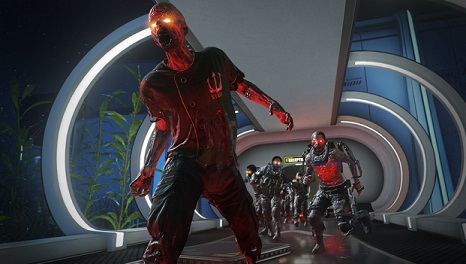


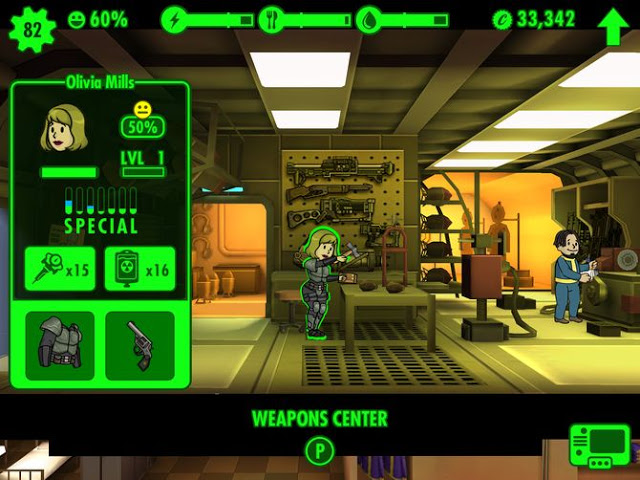
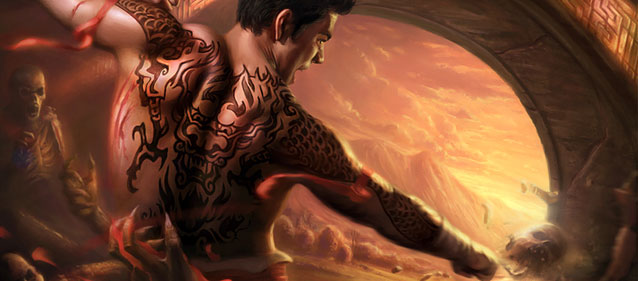 Top 5 Most Wanted Unlikely RPG Sequels
Top 5 Most Wanted Unlikely RPG Sequels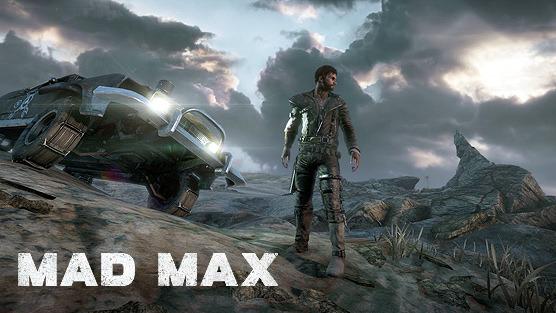 Mad Max: Where to Find Racing Tires Location Guide
Mad Max: Where to Find Racing Tires Location Guide To/Die/For (TDF) premiered In Black video and reveal new album details
To/Die/For (TDF) premiered In Black video and reveal new album details Is Spreaker Studio the Podcasting Tool of the Future?
Is Spreaker Studio the Podcasting Tool of the Future? Rock Band 4 Wiki – Everything you need to know about the game .
Rock Band 4 Wiki – Everything you need to know about the game .